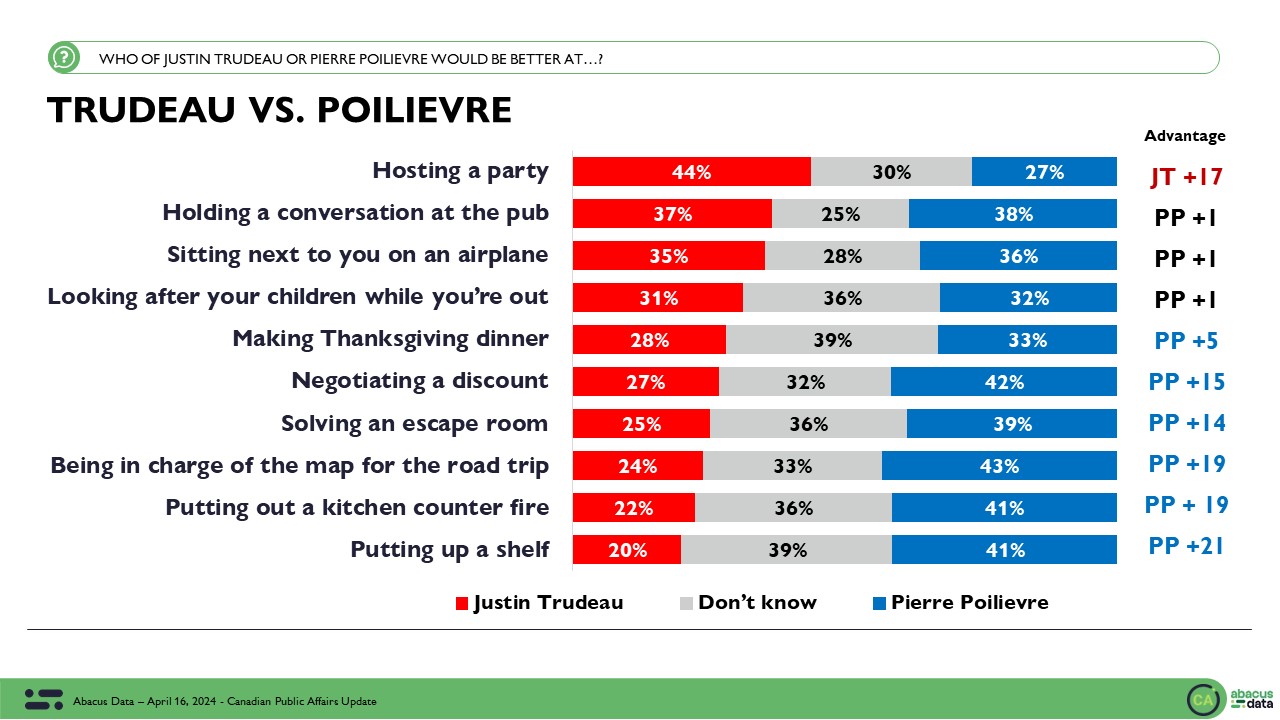Liberals lead by 6 nationally, as COVID-19 gains as top issue
November 28, 2020
Our latest national survey puts the Liberals ahead by 6 nationally – and with leads in BC, Ontario, Quebec and Atlantic Canada that would give them potential to win a majority if an election were held today.

• In BC, the Liberals 34% lead the Conservatives by six (28%). The Conservatives won the popular vote in that province in 2019 by 8-points.
• In Ontario, the Liberals (43%) lead by 12 over the Conservatives (31%). The Liberal margin in the 2019 election was 9-points.
• In Quebec, the Liberals (35%) lead the BQ by 6 (29%). The Liberals finished just 2 points ahead of the BQ in 2019.
• In Atlantic Canada, the Liberals are at 47%, followed by the Conservatives at 24%.
• In the Prairies the Conservatives have a massive roughly 30-point lead.
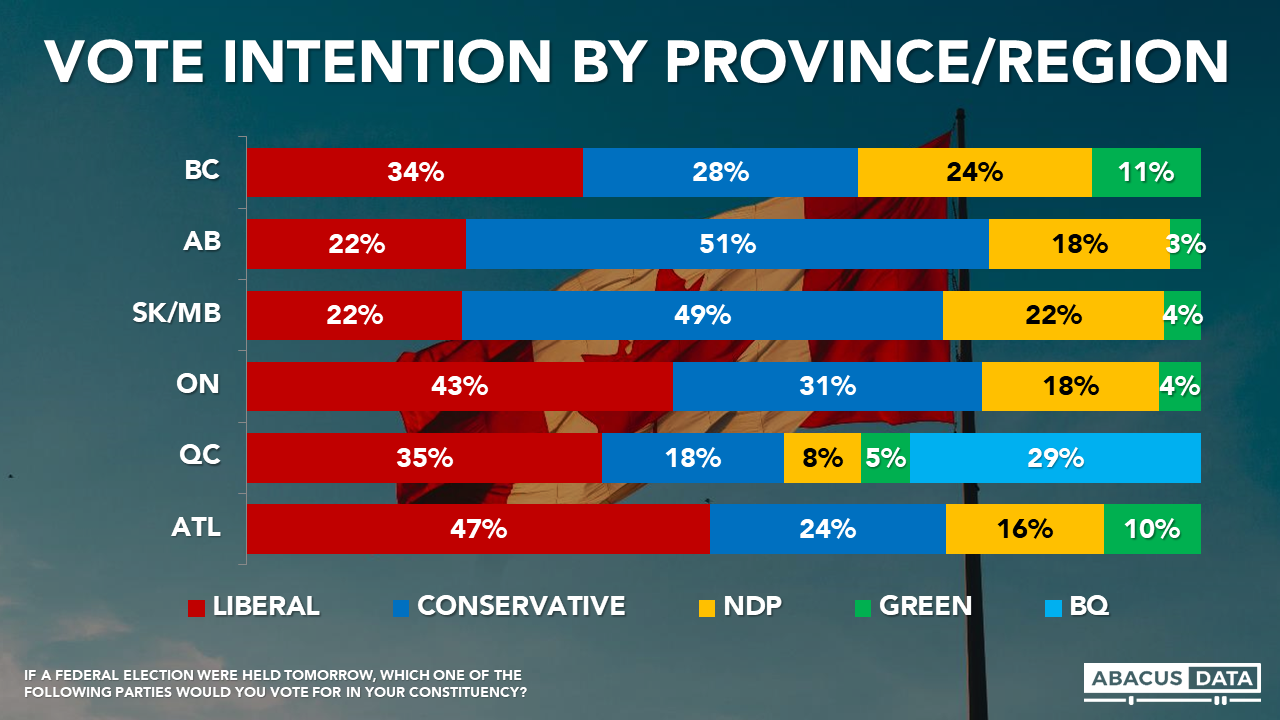
Approval of the federal government performance is +13 (48% approval – 35% disapproval). At the time of the last election, the Trudeau government was at -9, with 36% approval, and 45% disapproval.
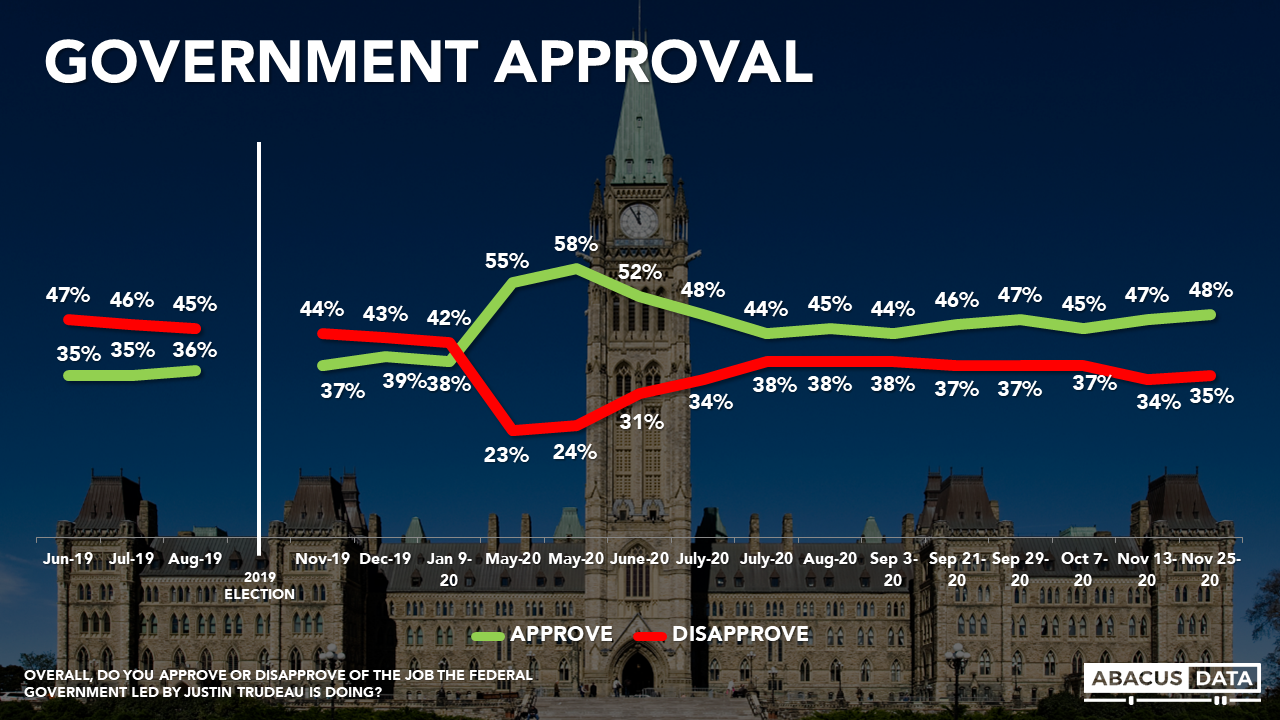
On a regional basis, BC voters give Ottawa a +25 (53% approve/28% disapprove) in Ontario the spread is +19 (54% approve/33% disapprove) and in Quebec +11 (44% approve/33% disapprove).
Almost one in four (22%) who voted Conservative in 2019 approve of the federal government performance right now, as do 46% of those who voted NDP and 39% of those who voted Green.

When it comes to the issues that are preoccupying the largest number of Canadians, a plan to deal with COVID-19 and a plan for the economy of the future are the top two, and COVID-19 concern has risen 6 points in two weeks.
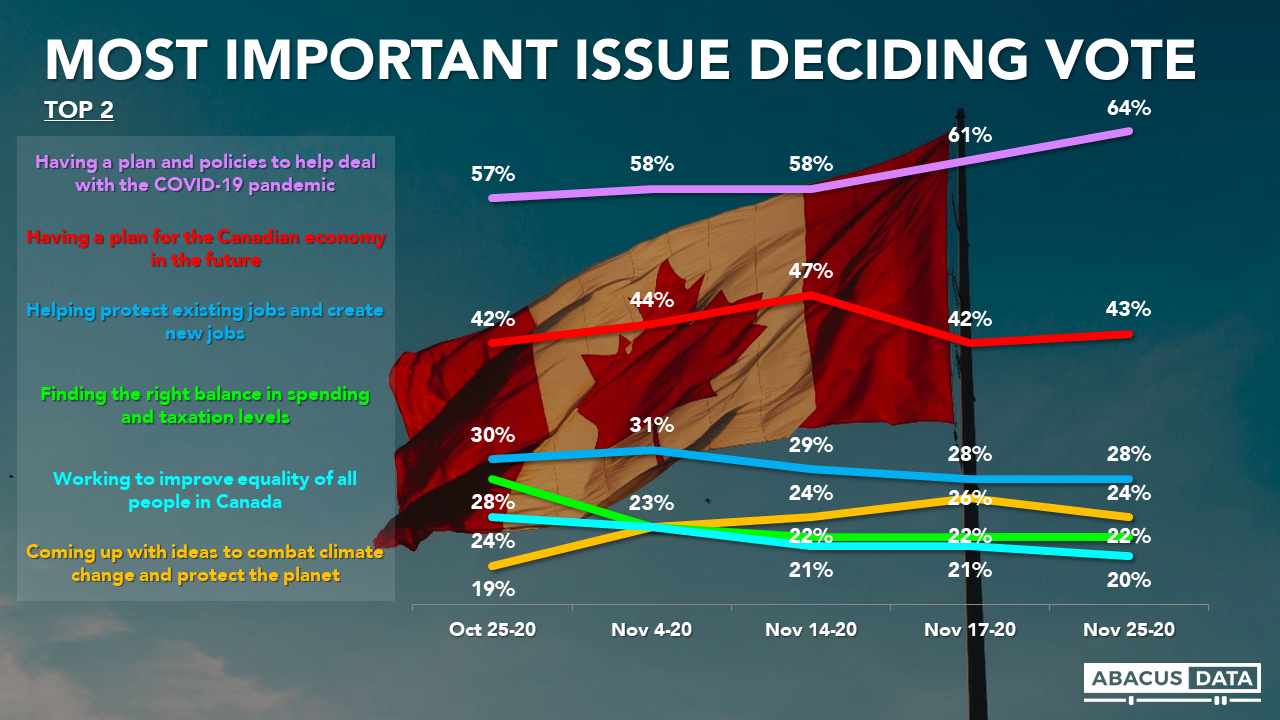
Among those who rate having a plan to deal with COVID-19 as a top issue (64%), 44% would vote Liberal today, 27% Conservative and 17% NDP. The Conservatives lead among those who are preoccupied with a plan for the economy, helping to protect/create jobs, or finding the right balance of spending and taxation. The Liberals are well ahead among those who say a top issue is climate change or improving equality for all.
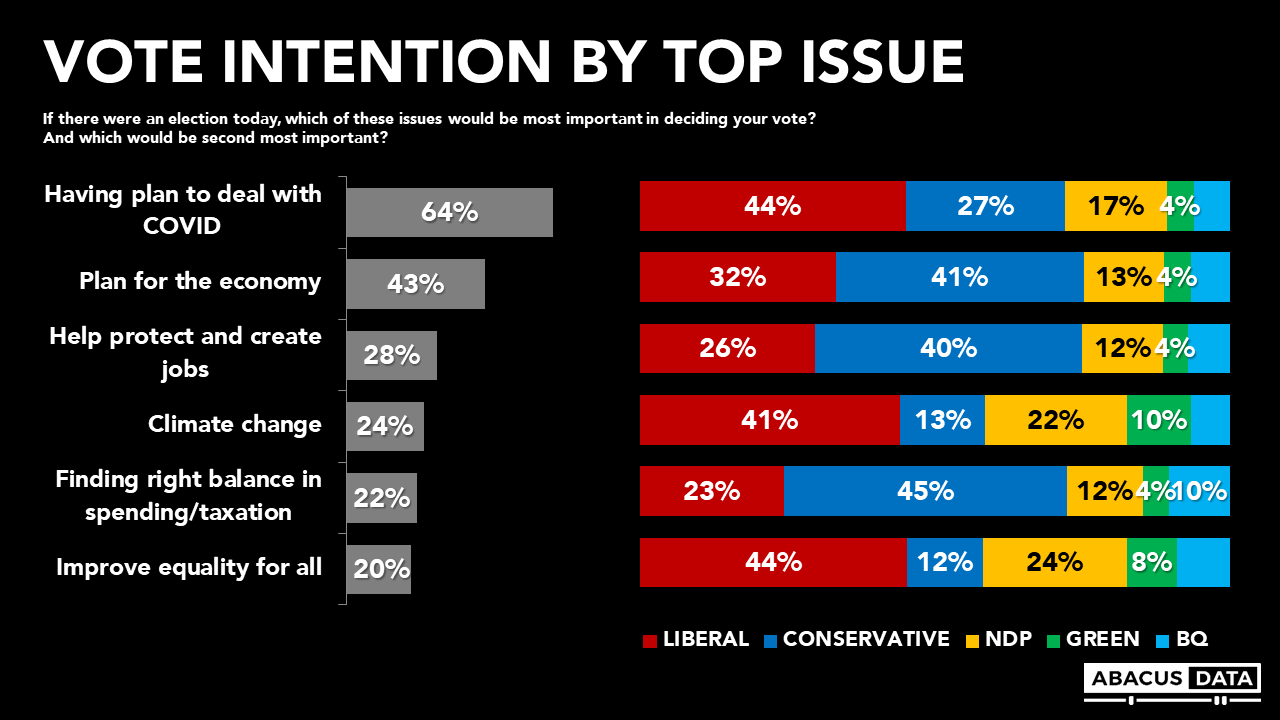
Impressions of the party leaders reveal:
• Trudeau is at +8 with 42% positive, 34% negative.
• Singh is at +13 with 36% positive, 23% negative
• O’Toole is +1 with 23% positive, 22% negative
• Blanchet is -19 with 14% positive, 33% negative. In Quebec, his image is +16.
• Paul is +1 with 15% positive, 14% negative. 40% don’t yet have an opinion of her.
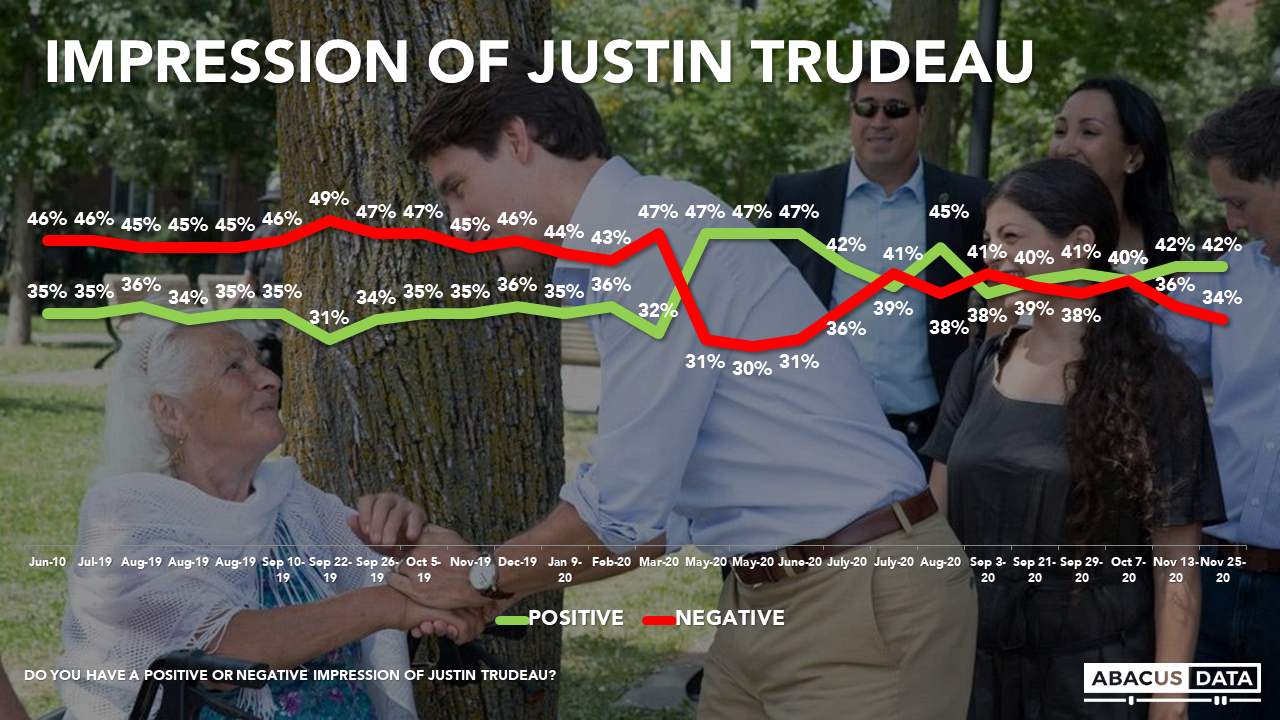

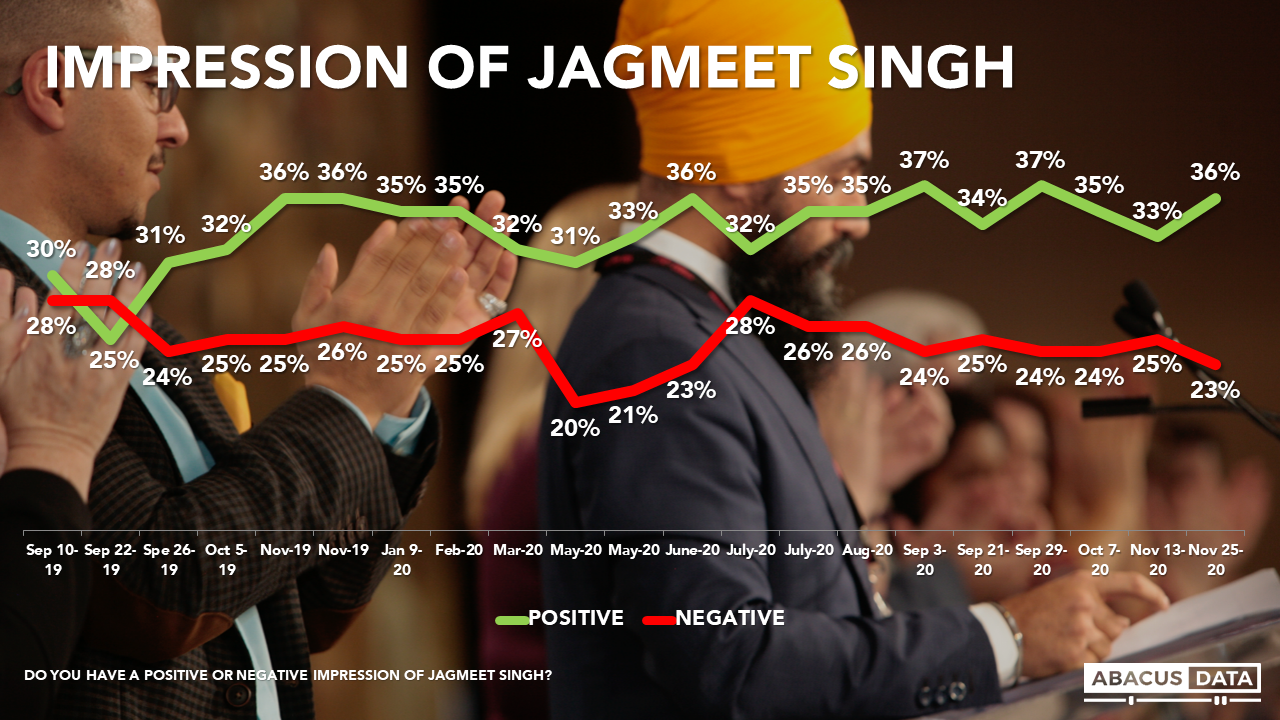
Looking at the results for Erin O’Toole after his first three months as Conservative Party leader reveals no change in overall impressions with equal numbers having a favourable opinion (23%) as unfavourable (22%). In Ontario and BC there has been no change. In Quebec, Mr. O’Toole’s negatives rose a bit from 18% to 24% and his positives rose slightly from 18% to 21%.
Relative to Justin Trudeau, here’s where Mr. O’Toole is at today, in the three provinces which hold the most seats. In BC, Mr. Trudeau is +12; Mr. O’Toole -4. In Ontario, Mr. Trudeau is +19; Mr. O’Toole net 0. In Quebec, Mr. Trudeau is +6, Mr. O’Toole -3.
UPSHOT
According to Bruce Anderson: “The Trudeau government is in good standing in terms of overall management and in dealing with the pandemic at the moment, but could be in a stronger position in terms of the public’s confidence on economic and fiscal matters. Finance Minister Freeland has an opportunity to help bolster that flank next week.
If opposition parties triggered an election now, the Liberals would enter it in better standing than they had in 2019, by a considerable amount.
The PM personally is holding a relatively good level of personal support especially in BC and Ontario, and in those provinces, Mr. O’Toole has not to date either been causing damage to Mr. Trudeau’s standing or building political capital for himself personally. Conservative messages on Covid-19 do not appear to be denting approval of the government or drawing interest in the Conservatives as an alternative – and their other major focus on China seems to be drawing limited public interest so far.”
According to David Coletto: “As Minister Freeland is set to share the Fall Economic Statement on Monday, our latest look at the political environment reveals the Liberals continue to govern with broad support from the public. The government’s approval rating remains above pre-election levels with close to 50% approving of its performance overall. The Prime Minister’s personal image is more positive than negative, and the Liberals have a six-point lead nationally over a Conservative Party that has been stuck around 30% since the 2019 election.
Almost two in three people say their top focus is the pandemic and will base their vote on a party’s plan to deal with it. Among this group, the Liberals lead by 17-points. Among those who rank an economic-focused issue as their top concern, the Conservatives have a lead. This gives us some insight into the impact of framing on a possible election in 2021. If it’s about COVID and COVID-response, the Liberals have the upper hand. If, on the other hand, it becomes framed around the economy, jobs, and fiscal policy, the Conservatives could be competitive and even win.”
ABOUT ABACUS DATA
We are the only research and strategy firm that helps organizations respond to the disruptive risks and opportunities in a world where demographics and technology are changing more quickly than ever.
Find out more about what we are doing to help clients respond to the COVID-19 pandemic.
We are an innovative, fast-growing public opinion and marketing research consultancy. We use the latest technology, sound science, and deep experience to generate top-flight research-based advice to our clients. We offer global research capacity with a strong focus on customer service, attention to detail and exceptional value.
We were one of the most accurate pollsters conducting research during the 2019 Canadian Election.

Contact us with any questions.
Find out more about how we can help your organization by downloading our corporate profile and service offering.
METHODOLOGY
The survey was conducted with 2,912 Canadian adults from November 16 to 24, 2020. A random sample of panelists were invited to complete the survey from a set of partner panels based on the Lucid exchange platform. These partners are typically double opt-in survey panels, blended to manage out potential skews in the data from a single source.
The margin of error for a comparable probability-based random sample of the same size is +/- 1.85%, 19 times out of 20.
The data were weighted according to census data to ensure that the sample matched Canada’s population according to age, gender, educational attainment, and region. Totals may not add up to 100 due to rounding.




